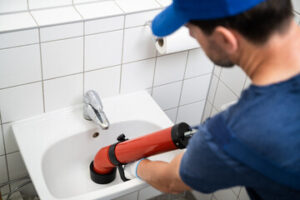Roofing Experts understand that every building has unique roofing needs, influenced by its design, location and purpose. They use their knowledge to develop roofing solutions that meet these needs.

They also know how important it is to pay attention to surface preparation and quality fasteners. This will help prevent premature failure and maintenance challenges.
Your roof is the first line of defense against harsh weather conditions. It protects you from scorching sun, heavy rain, and snowstorms. Because of its importance, you should not entrust its maintenance to anyone less than an expert. Inexperienced professionals may not be able to identify issues with your roof. However, roofing experts have spent years perfecting their craft, which means that they can quickly spot problems and fix them. This will help you avoid expensive repairs in the future.
Roofing experts also know the building codes and can advise you on the appropriate materials to use for your home or commercial property. They will not be limited to the standard roofing materials you may find at your local hardware store and are more likely to use high-quality, durable materials that can withstand severe weather conditions. Additionally, they can also provide you with recommendations for a roof warranty.
A roofing expert is also able to give you an in-depth analysis of the damage done to your roof, including the structural integrity of the materials and the likelihood that the damage could have been prevented. In addition, they can assist with forensic analysis, repair cost estimates, site investigations, contract reviews, and other related inquires.
Moreover, roofing experts adhere to strict safety protocols, which significantly lowers the risk of injuries and damages during the re-roofing process. They will also handle and dispose of hazardous waste properly, minimizing the impact on the environment. In addition, they carry insurance coverage that protects you against any damages or injuries to workers and the surrounding area during the project. This is especially important when dealing with roofing projects that are complex and require large-scale demolition and installation of new equipment.
Experience
Roofing experts have spent years perfecting their craft and can easily spot problems that may go unnoticed by an inexperienced eye. This allows them to address issues quickly and efficiently, saving you time and money in the long run. Moreover, they have access to high-quality materials that are designed to withstand harsh weather conditions and provide you with lasting protection for your home.
Whether you need a roof repaired or replaced, a roofing expert can help you find the best solution for your home. They will use high-quality materials and will install the roof according to specifications, ensuring that it is durable and weather resistant. In addition, they will also take care of any necessary insurance requirements and conduct thorough inspections after the project is complete.
You should always get a written estimate from any roofing contractor you are considering. This way, you can ensure that they are not overcharging or taking advantage of you. In addition, it will prevent any disagreements about the cost of the work later on.
If you are unsure of the price of a roof repair, ask around at local lumber and building supply stores. They can often give you good recommendations for reputable roofing contractors. Additionally, you can contact local home improvement associations to see if they know any roofers in your area.
Choosing the right roofing expert can make all the difference in the success of your project. Ensure that they are licensed and insured to protect yourself from any potential lawsuits that may arise during the project. You should also check their references and customer satisfaction ratings. Moreover, you should ask for a warranty on their work and be sure to follow up on any questions or concerns that you might have.
Licenses
While it is not a requirement in most areas, licensing demonstrates that a roofing company is committed to providing their customers with high-quality work and service. It also demonstrates that they are familiar with local regulations and standards for the industry. Additionally, it can be a sign that a roofing contractor has passed one or more exams and has extensive experience. In order to be licensed, a roofer must undergo rigorous training and apprenticeships, pass difficult examinations, and demonstrate proficiency in the field.
In Connecticut, all contractors who perform home improvement work over $200 for residential properties must register with the Department of Consumer Protection. Those who do roofing as part of this work must obtain a Home Improvement Contractor License, and they may also wish to join the Connecticut Roofing Contractors Association.
Similarly, the State of Arizona requires all contractors to secure a license from the Arizona Registrar of Contractors. The licensing process involves passing a trade exam, providing financial statements, and displaying proof of insurance coverage. There are different licenses for commercial and residential work, and each must be maintained at all times.
All roofing contractors in Nebraska are required to be registered with the Department of Labor. Those who employ employees must provide workers’ compensation and general liability insurance. They must also post a bond and meet certain experience and education requirements.
In West Virginia, all contractors must be licensed with the Division of Labor. They must pass a business and law exam, and they must submit workers’ compensation, unemployment, and general liability coverage for their employees. In addition, a $6,000 bond is required to be licensed as a Specialty Contractor in the roofing category.
Insurance
Roofing contractors have unique insurance needs due to their demanding work. Among other things, they need general liability to cover damages resulting from accidents at client locations and workers’ compensation for injuries that occur while performing their jobs. Fortunately, there are commercial property and casualty insurance policies that offer this coverage for roofing professionals.
A roofing business can also purchase professional liability, or errors and omissions insurance. This coverage can help pay for legal costs and settlements if a customer alleges that you have provided faulty advice or performed poor workmanship. In addition, a roofing business may need to purchase surety bonds, or fidelity bonds, to guarantee the quality of their work and that they will complete projects as promised.
Other types of insurance a roofing business can consider include workers’ compensation, commercial auto, and commercial umbrella. Workers’ comp covers medical treatment, lawsuits, lost wages, and death benefits for employees who are injured on the job. This coverage is mandatory in most states and provinces. Roofing companies can purchase it through private insurers or, in some cases, through state-run workers’ compensation programs.
Commercial auto, or commercial vehicle insurance, provides coverage for a company’s vehicles. This is important because personal auto insurance does not usually extend to business-owned vehicles. A commercial auto policy can also include business interruption insurance, which helps pay for lost income after a disaster disrupts your roofing company’s operations.
Lastly, a roofing business can purchase commercial property insurance, or a business owner’s policy (BOP), to cover the building and contents that house tools and materials. This policy can also include inland marine coverage, which is helpful if equipment or materials are damaged in transit.
Warranty
A warranty is an important part of any roof installation project. It mitigates the risk that a contractor could make mistakes that will impact your home’s longevity and performance. Reputable roofing contractors will always stand behind their work and will offer warranties for both the materials and workmanship.
Many homeowners think that a manufacturer’s warranty is all they need to protect their new roof from problems. While these types of warranties are helpful, it is important to understand what they do and don’t cover.
Often, these manufacturers’ warranties will only cover the products that were used in your roof’s construction. These include shingles, underlayment, and flashing products. However, they will not cover other components of your roof such as ice and water shields, insulation, or ventilation products. These other parts of your roof are subject to the elements and can also be damaged during the roof’s installation process or by other things like high winds, hail, foot traffic, or alterations made after the roofing project is finished.
Most of these manufacturer’s warranties have specific terms and conditions that need to be met for the coverage to remain valid. Bringing in a different contractor, failing to set up an inspection reminder on your calendar, or not registering the warranty with the manufacturer can all cause your warranty to become null and void.
It is critical to do your homework and research the different warranty options available from reputable roofing contractors in your area. Once you have narrowed down your choices, you can ask each of them what their warranty offerings are and compare their terms and conditions to make the best decision for you and your family’s needs.

